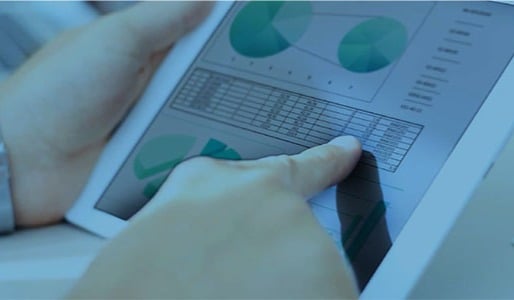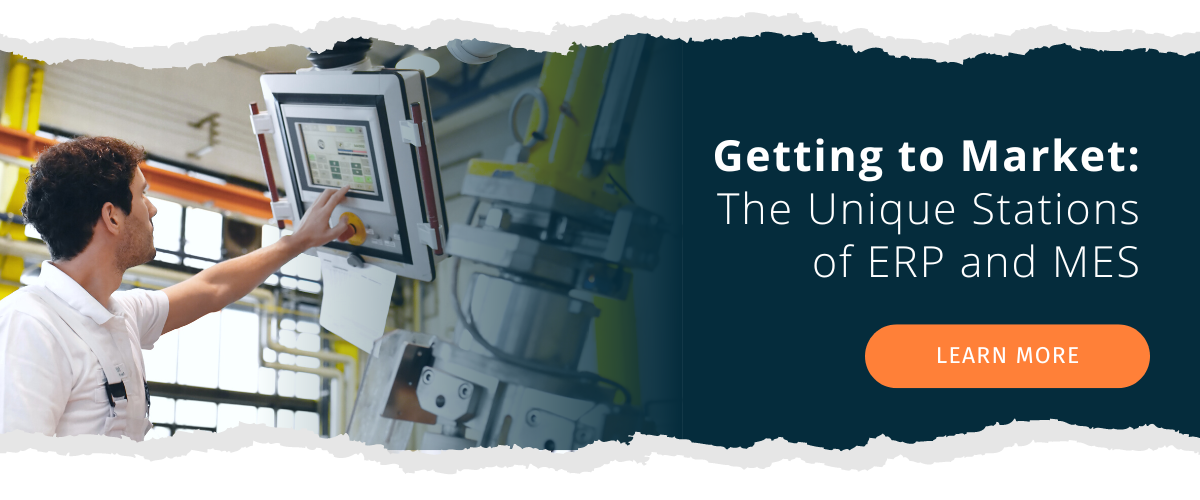What is a Manufacturing Execution System (MES)?
Businesses are currently leveraging the power of modern technology to achieve viability in the...

The lifeblood of any business is information. Organizing, accessing and keeping this vital data flowing throughout every area of a company determines a company’s efficiency and its likelihood of survival. Enterprise Resource Planning (ERP) systems are specialized software suites comprised of modules designed to facilitate the capturing and sharing of information.
ERP acts as an interface between different software systems in use within the separate units of a business, to provide a clear view of activity taking place throughout the organization.
Read more to learn all about ERP and how it can help your business.

Since ERP focuses specifically on planning the use of resources, it is a valuable forecasting and reporting tool for management. It allows decision makers in a company to get unfiltered snapshots about areas such as:
The different departments of an organization feed data into the ERP system, and it provides cross-platform conduits through which they can share information. This connectivity enables individuals at varying levels of an organization to retrieve critical data easily from all other areas.
Modern ERP implementations feature the use of a centralized database to help minimize redundancy of data entry. These systems increase efficiency by assisting planners in determining how to best allocate resources and optimize business processes. Increased transparency within an organization also helps pinpoint problems that management should address in future strategic planning sessions.
Vendors customize ERP systems (and sometimes combine with CRM systems) for optimal functionality with the unique processes of various types of businesses. In the manufacturing setting, the focus of ERP is on providing timely knowledge about the availability of resources to meet production schedules and commitments, as well as tracking production costs.
The system generates reports on topics such as how much material has a given process used, how much is still available and when does an order for more raw material need to take place.
The ERP issues production build requests based on sales orders, providing routing and inventory to be used. This information is generally converted into paper travelers which accompany the units being manufactured. Operators enter information onto these paper travelers which are then handed off at the end of the production process for manual data entry into the ERP.
Integration with a Manufacturing Execution System (MES) provides a means for digitizing transactions and data collection on the production floor, removing the need for costly and error-prone paper travelers. Production information can thus be uploaded in realtime to the ERP. This results in improved labor and machine utilization, accurate inventory tracking, improved product quality, and ultimately faster time-to-market.
ERP has experienced a resurgence in recent years. As manufacturers and other businesses have strived to compete in leaner economic times, they have begun to realize the advantage of integration with other systems better suited for manufacturing into today’s digital age. A well-designed, integrated ERP system functions superbly as a pathway of information between nodes within an organization and provides businesses a way to analyze and improve their performance.
Intraratio can help you discover the power of MES and yield management systems for your manufacturing process. Arrange now to speak with an MES expert who can guide you through the ins and outs of customizing an advanced solution for your operation.
3 Things To Think About When Choosing Between an ERP or MES System - If you are trying to decide between an MES or ERP solution, you will want to provide answers to the following questions before making your final choice.
Data Mapping: A Proactive Approach for Rapid Integration of MES and ERP - Explore the importance of data mapping in MES and ERP integration for efficient manufacturing operations, with advanced techniques for success.
Traceability for Surface Mount Technology (SMT) Process - Enhance SMT efficiency and quality with traceability. Learn how barcode scanners, data logging, MES, standardization, and training drive success
Businesses are currently leveraging the power of modern technology to achieve viability in the...
Data traceability has become a critical aspect of manufacturing processes in recent years, with...